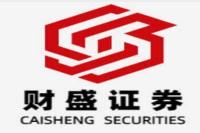Xi Jinping's Visit to Macau University of Science and Technology: A Deep Dive into Scientific Advancement and National Pride
Meta Description: Xi Jinping's recent visit to Macau University of Science and Technology highlights China's commitment to scientific research, particularly in traditional Chinese medicine and space exploration. This article delves into the significance of the visit, the implications for scientific development in Macau and China, and the future of these critical research areas. Keywords: Xi Jinping, Macau University of Science and Technology, Traditional Chinese Medicine, Space Exploration, Scientific Research, China, National Development.
Imagine this: the air crackles with anticipation. The leader of a nation, a man whose decisions shape the lives of billions, steps onto a university campus. Not just any campus, but one nestled in the vibrant heart of Macau, a special administrative region brimming with potential. This isn't a casual visit; this is Xi Jinping, President of the People's Republic of China, deeply engaging with the cutting-edge research at Macau University of Science and Technology (MUST). His focus? Two crucial areas – Traditional Chinese Medicine (TCM) and lunar/planetary science. This isn't just about a photo op; it's a powerful statement about China's ambitions for scientific leadership on the global stage. It's a signal that investment in advanced research, particularly in areas with deep cultural roots and futuristic implications, is paramount to national progress. This visit isn't merely a news item; it's a pivotal moment underscoring China's strategic vision for the 21st century and beyond. We'll dissect the visit, explore its ramifications for MUST, and look ahead to the exciting possibilities that lie ahead in TCM and space research. Get ready to delve into a detailed analysis of this significant event, packed with insights and expert perspectives. This is more than just a recap; it's a journey into the heart of China's scientific aspirations.
Traditional Chinese Medicine (TCM) Research: A Legacy Redefined
Xi Jinping's emphasis on the State Key Laboratory of Quality Research in Traditional Chinese Medicine at MUST is a significant endorsement of a field deeply entwined with Chinese culture and history. For centuries, TCM has played a pivotal role in healthcare, and this visit signals a renewed commitment to modernizing and enhancing its scientific basis. It's not just about preserving tradition; it's about leveraging cutting-edge research to unlock the full therapeutic potential of TCM.
This isn't some dusty, antiquated practice clinging to the past. No way! This is about meticulous scientific investigation – rigorous clinical trials, advanced analytical techniques, and a commitment to evidence-based practices. The goal? To not only validate the effectiveness of existing TCM treatments but also to discover new and even more powerful therapies. Think of it as a bridge between ancient wisdom and modern science – a powerful combination.
The visit underscores the importance of:
- Standardization and Quality Control: Ensuring the consistent quality and efficacy of TCM products is crucial for building global trust and acceptance. This requires advanced analytical techniques and robust quality control measures. Think of it as bringing TCM into the 21st century with rigorous quality checks.
- Modernization and Innovation: Integrating traditional knowledge with modern scientific methodologies is key to unlocking the full potential of TCM. This involves using advanced technologies like genomics and proteomics to identify active compounds and mechanisms of action.
- Global Collaboration: Sharing knowledge and collaborating with international researchers can accelerate progress in TCM research. This will place China at the forefront of global medicinal advancements.
Table 1: Key Aspects of TCM Modernization
| Aspect | Description | Impact |
|-------------------|--------------------------------------------------------------------------|---------------------------------------------------|
| Standardization | Establishing consistent quality and efficacy standards for TCM products. | Enhanced reliability and global acceptance. |
| Scientific Validation | Conducting rigorous clinical trials and research to prove efficacy. | Greater credibility and integration into mainstream medicine. |
| Technological Integration | Using advanced tools like genomics and proteomics for analysis. | Discovery of new active compounds and mechanisms. |
| International Collaboration | Sharing knowledge and working with global researchers. | Accelerated progress and global leadership. |
Space Exploration: Reaching for the Stars
The other focus of Xi Jinping's visit was the State Key Laboratory of Lunar and Planetary Sciences. This reflects China's rapidly growing ambition in space exploration. It's not just about planting a flag on the moon; it's about scientific discovery, technological advancement, and securing a prominent role in the global space race. This isn't some small-time endeavor; it’s a significant investment in the future.
The implications of this focus are vast:
- Technological Advancement: Space exploration drives innovation across numerous fields, from materials science to robotics and telecommunications. The spin-off technologies developed for space applications often find their way into everyday life.
- Scientific Discovery: Studying the moon and other planets provides valuable insights into the formation and evolution of our solar system and potentially even the origins of life.
- International Collaboration: While China is leading its own space program, international collaboration is essential for ambitious projects like lunar exploration.
This isn't simply about keeping up with the Joneses; it’s about leading the pack. China's commitment to space exploration is a clear sign of national ambition and a desire to be a key player in the future of humankind's exploration of the cosmos. It's about pushing boundaries, embracing challenges, and striving for greatness.
The Significance of Xi Jinping's Visit
Xi Jinping's visit to MUST carries immense symbolic weight. It’s a powerful endorsement of scientific research and its importance in national development. It shows that the Chinese government is deeply committed to investing in education, research, and innovation. Moreover, it highlights the importance of integrating traditional knowledge with modern science, creating a unique blend of heritage and progress. This isn't merely a symbolic gesture; it’s a strategic move to consolidate China's position in the global scientific community.
Frequently Asked Questions (FAQs)
Q1: What is the significance of Xi Jinping's visit to MUST?
A1: Xi Jinping's visit signifies China's commitment to scientific advancement, particularly in TCM and space exploration. It also highlights the importance of integrating traditional knowledge with modern science.
Q2: Why is TCM research important?
A2: TCM research is crucial for validating and modernizing traditional practices, ensuring quality control, and discovering new therapies. It’s a blend of ancient wisdom and modern science.
Q3: How does China's space program benefit the nation?
A3: China's space program drives technological innovation, fosters scientific discovery, and enhances the nation's international standing. It's a catalyst for progress.
Q4: What is the role of international collaboration in TCM and space exploration?
A4: International collaboration accelerates progress in both fields by sharing knowledge, resources, and expertise. It's about global partnership.
Q5: What are the long-term implications of Xi Jinping's visit?
A5: The visit’s implications are far-reaching. It will likely lead to increased investment in MUST, greater emphasis on TCM and space research, and a further strengthening of China’s scientific capabilities.
Q6: How does this visit relate to China's overall national strategy?
A6: This visit perfectly aligns with China's broader national goals of scientific self-reliance, technological innovation, and increased international influence. It's a strategic move in China's grand plan.
Conclusion
Xi Jinping's visit to Macau University of Science and Technology represents a significant investment in China's future. The focus on TCM and space exploration underscores the nation's commitment to scientific excellence and its aspiration to become a global leader in these critical fields. This isn't just about scientific progress; it’s about national pride, technological advancement, and a vision for a brighter future. The visit serves as a powerful reminder that investment in research and development is not just a financial expenditure, but a strategic investment in a nation's future prosperity and global influence. The journey towards scientific leadership is ongoing, and this visit marks a significant milestone on that path.



